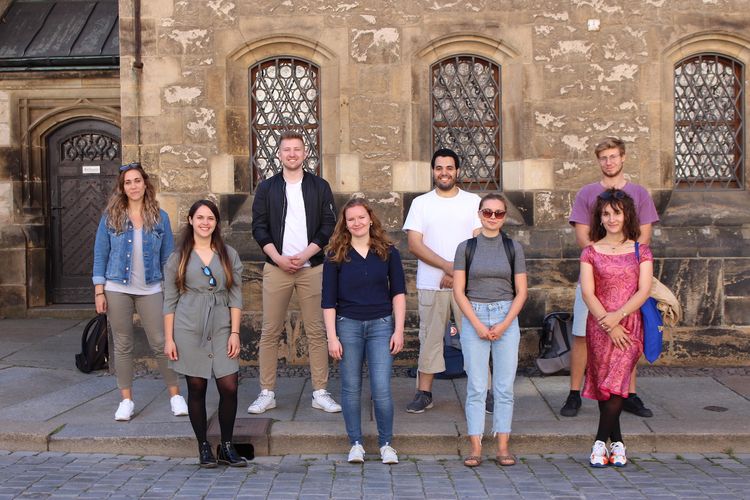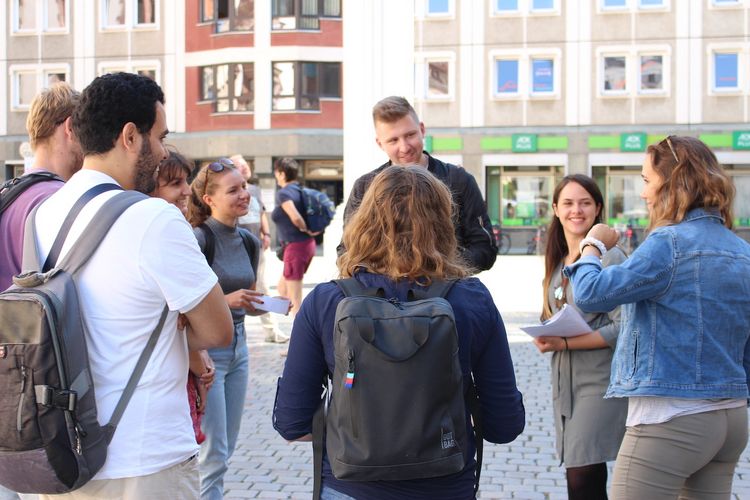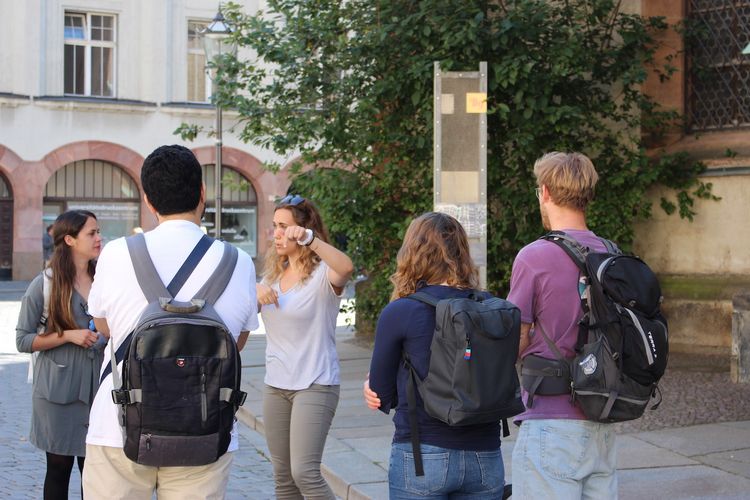This year, the Summer School will take place online for the first time in both Leipzig and Granada. Nevertheless, the German participants had the opportunity to get to know each other in person. The preparation course for the Spanish classes took place on the University campus. But not only were the seminar rooms of the Faculty of Education used; Leipzig’s city centre was also transformed into a place of learning and teaching for Spanish teacher Alba Delgado and her students. “The city expedition isn’t just a fast-paced and fun way to pass the time, but also a great opportunity for students to put the vocabulary they’ve learned into practice,” said Delgado, who is originally from Spain. Together with ten students, Delgado organised the city expedition last Wednesday, offering a playful setting for them to practise their B1-level Spanish.
At the same time, pairs of learners from Granada and Leipzig are forming language tandems and practising together online. The tandem principle allows students to further improve their language skills outside of the classroom. They learn not only the language of their counterpart, but also about their culture. The participants also meet in a virtual language café. Once a week, everyone comes together in front of their screens to discuss various topics in groups.
The learning and teaching activities that the summer school combines aim to promote multilingualism and multiculturalism. This corresponds to the thematic focus of the Arqus Action Line “Multilingual and Multicultural University”, which is chaired by our university. The Alliance aims to use its linguistic diversity to create a multilingual environment at the seven partner universities in Bergen, Granada, Graz, Lyon, Padova, Vilnius and, of course, Leipzig. At the same time, it wants to go beyond language learning, also intensifying intercultural communication skills among students and staff.

































































